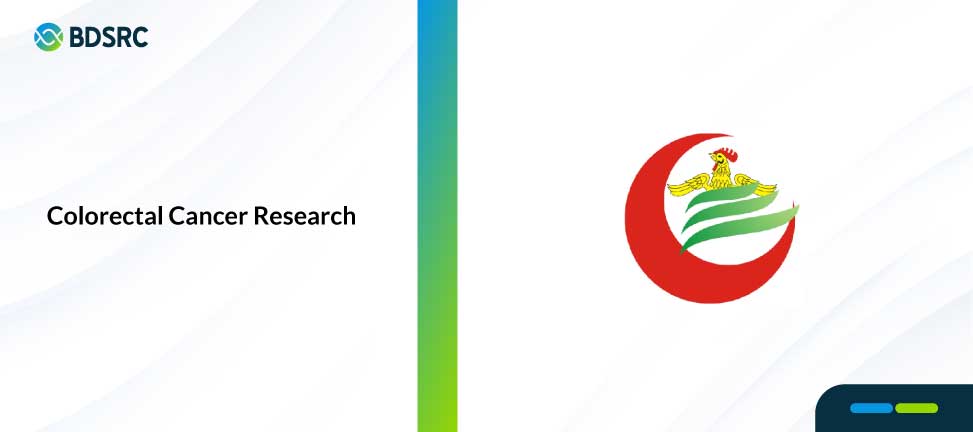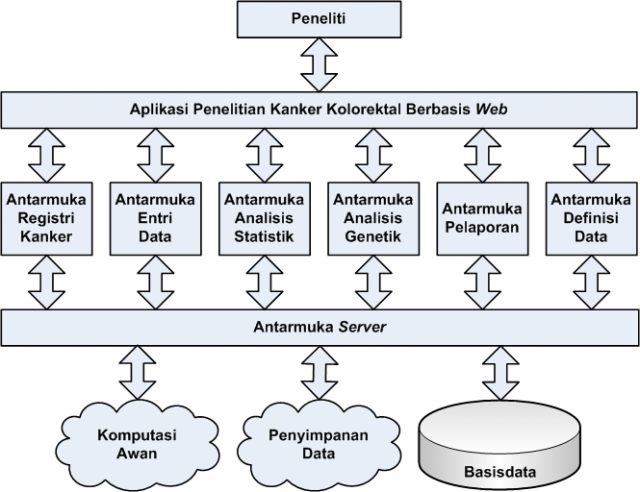Colorectal Cancer Research

Colorectal Cancer Site Specific
Overview
Colorectal cancer is the 2nd most common type of cancer in males after lung cancer in Indonesia (Wahidin, 2012). In developed countries, the incidence of colorectal cancer increases sharply after the age of 50 years; whereas only 3% are found among those patients less than 40 year of age. In Indonesia, we notice a different pattern, that there were 35.2% colorectal cancer cases of young age (less than 40 years). Compared to developed countries, there is higher incidence of young colorectal cancer patients in Indonesia. In addition, the young Indonesian patients with colorectal cancer are frequently admitted to the hospitals with a more progressive disease and do not have well-response to chemotherapy. (Sudoyo et al, 2010).
A consortium of hospitals has recently established to track and study colorectal cancer cases across the country over time. The consortium has been greatly successful and soon there will be data collected on over 8,000 patients from 16 hospitals. An Excel spreadsheets currently maintains the records but as more patients, hospitals, and clinicians become involved, a systematic and centralized data management system is needed. We propose to develop a secure, centralized system to help the consortium manage and analyze colorectal cancer patient data.
Key Features
- Provide security features where users are authenticated and authorized to use the system and access data
- Allow data entry from multiple sites and users
- Ensure that data entering the system meets pre-defined quality control requirements
- Maintain consistency and integrity of the data across multiple sites and users
- Export data ready for statistical analysis
Research Opportunities
The Colorectal Cancer Research Information System will help researchers perform epidemiological and surveillance studies on colorectal cancer. The system will be fully integrated, meaning the tools needed for collection, management, and analysis of colorectal cancer data is available within one system (Figure 1). The system will be simple for users to setup and to use, since no knowledge of the underlying technology is required. The various colorectal cancer data collected over various hospitals will be securely entered by personnel into a centralized information system. Researchers will have access to the data instantly as it is entered in the system and will allow for on-demand reporting and data analysis.
Figure 1: Conceptual Diagram of the Colorectal Cancer Research Information System

